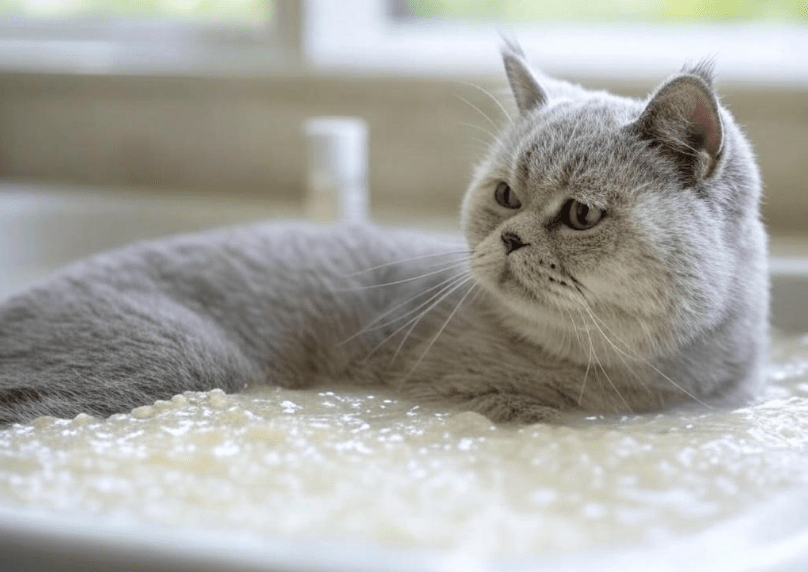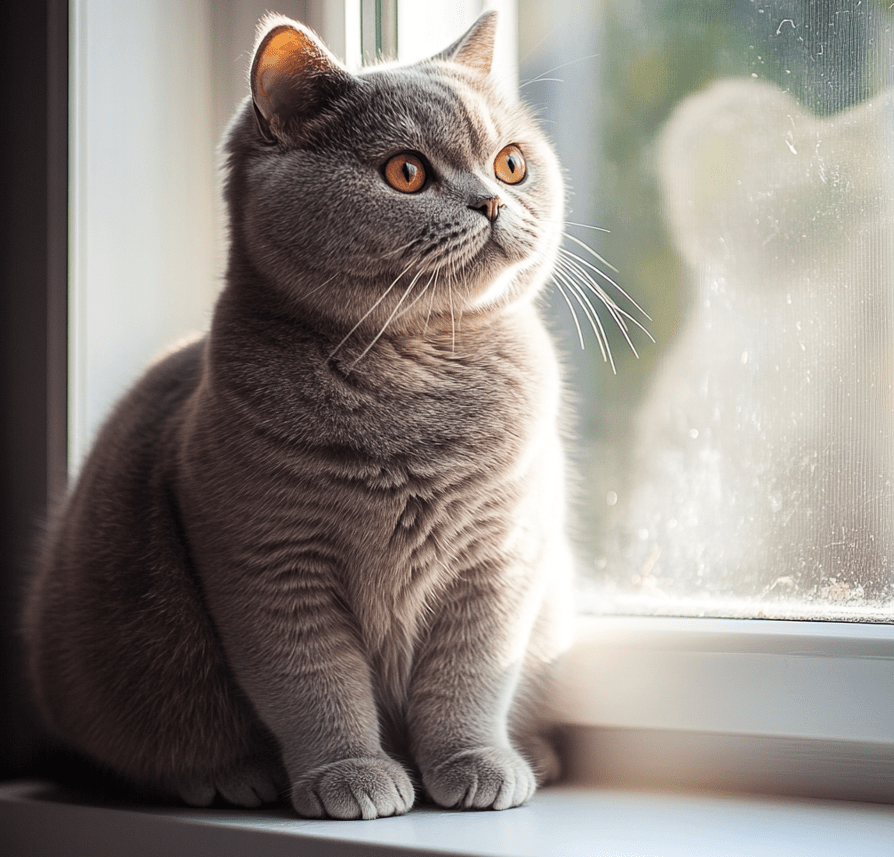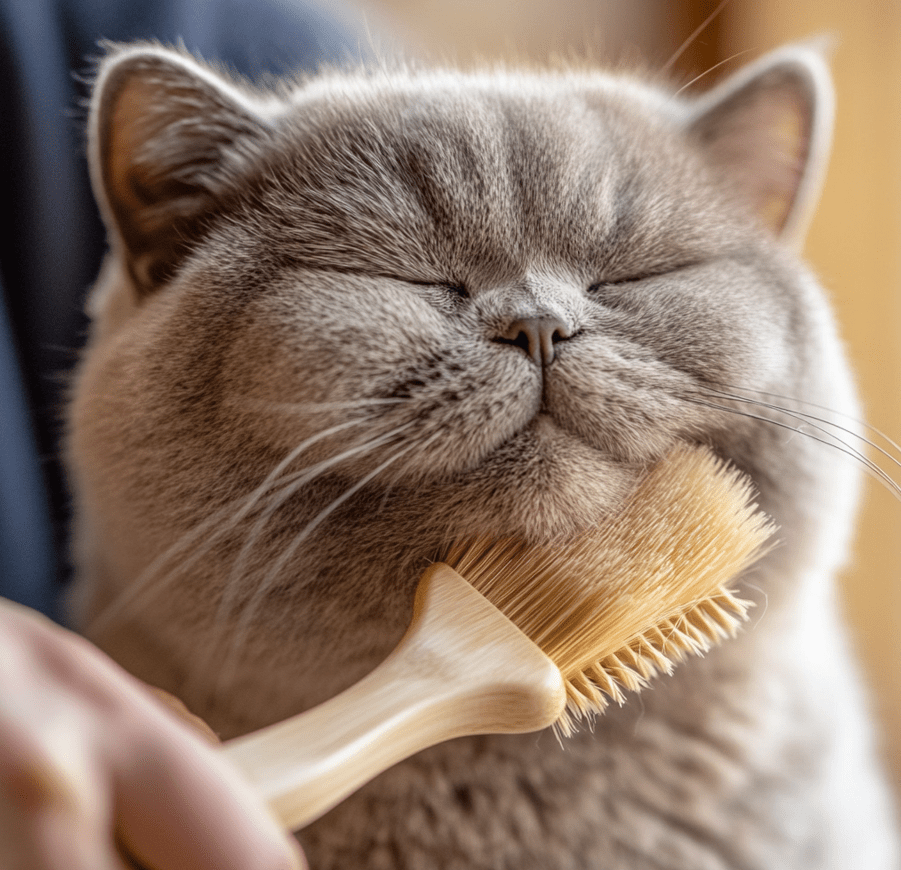
British Shorthair Cats, with their plush coats and affectionate personalities, are cherished companions in many households. However, their dense fur and sensitive skin can sometimes lead to mild skin irritations, causing discomfort for these beloved pets. As a devoted owner, finding safe and effective natural remedies for skin irritations in British Shorthairs can help maintain their health and happiness without relying solely on medications. This comprehensive guide explores the causes of skin irritations in British Shorthairs, natural remedies to soothe their skin, and preventative measures to keep their coat healthy.
Understanding Skin Irritations in British Shorthairs
Skin irritations in British Shorthairs can manifest as redness, itchiness, flaking, or hot spots. Their thick, double-layered coat, while beautiful, can trap allergens, dirt, or moisture, contributing to skin issues. Common causes include:
Allergies: British Shorthairs may develop allergies to food, environmental factors (like pollen or dust), or flea bites, leading to itchy skin.
Dry Skin: Low humidity, frequent bathing, or poor grooming can cause flaky, irritated skin.
Parasites: Fleas, mites, or ticks can trigger scratching and inflammation.
Fungal or Bacterial Infections: Conditions like ringworm or bacterial dermatitis can cause localized irritation.
Dietary Imbalances: A lack of essential fatty acids or nutrients can affect skin health.
Before treating skin irritations, consult a veterinarian to rule out serious conditions like mange or autoimmune disorders. For mild cases, natural remedies can provide relief and promote healing.
Why Choose Natural Remedies?
Natural remedies are often gentler on a British Shorthair’s sensitive skin compared to harsh chemical treatments. They can reduce the risk of side effects and align with a holistic approach to pet care. Benefits include:
Safety: Many natural remedies use ingredients already safe for feline use.
Accessibility: Common household items or easily sourced products can be used.
Cost-Effectiveness: Natural treatments are often more affordable than prescription medications.
Complementary Care: They can be used alongside veterinary treatments for enhanced results.
However, not all natural remedies are safe for cats. Essential oils, for example, can be toxic to felines, so always research and consult a vet before application.
Top Natural Remedies for Skin Irritations in British Shorthairs
Below are vet-approved, natural remedies to soothe mild skin irritations in British Shorthairs. Always test a small area of skin first to ensure your cat doesn’t have an adverse reaction.

1. Oatmeal Baths
Oatmeal is a time-tested remedy for soothing itchy, inflamed skin. Its anti-inflammatory properties can calm redness and reduce scratching.
How to Use:
1.Grind plain, unflavored oatmeal into a fine powder.
2.Mix 1–2 tablespoons of oatmeal powder into a small tub of lukewarm water.
3.Gently soak your British Shorthair for 5–10 minutes, ensuring the affected areas are submerged.
4.Rinse thoroughly with clean water and pat dry with a soft towel.
Frequency: Use once or twice a week for mild irritations.
Precaution: Avoid getting water in your cat’s ears or eyes, and ensure the oatmeal is free of additives like sugar or flavorings.
2. Aloe Vera Gel
Aloe vera is known for its cooling and healing properties, making it ideal for minor skin irritations. It can reduce inflammation and promote skin repair.
How to Use:
1.Use 100% pure, organic aloe vera gel (ensure it’s free of alcohol or additives).
2.Apply a thin layer to the irritated area, avoiding open wounds.
3.Monitor your cat to prevent licking for at least 10 minutes.
Frequency: Apply 1–2 times daily until symptoms improve.
Precaution: Only use aloe vera gel labeled as pet-safe, as some products contain toxic additives. Consult your vet before use.
3. Coconut Oil
Coconut oil is a natural moisturizer with antimicrobial and antifungal properties, making it effective for dry skin or mild infections.
How to Use:
1.Use organic, virgin coconut oil.
2.Warm a small amount (pea-sized) between your fingers and gently massage into the affected area.
3.Allow it to absorb naturally.
Frequency: Apply once daily for up to a week.
Precaution: Use sparingly to avoid greasiness, which can attract dirt or clog pores. Ensure your cat doesn’t ingest large amounts, as it may cause digestive upset.
4. Chamomile Tea Rinse
Chamomile has anti-inflammatory and soothing properties, making it a gentle remedy for itchy skin.

How to Use:
1.Brew a cup of chamomile tea using a pet-safe, caffeine-free tea bag.
2.Let the tea cool completely.
3.Use a clean cloth or cotton ball to apply the tea to irritated areas, or pour it over your cat’s coat as a rinse.
Frequency: Use 2–3 times a week.
Precaution: Ensure the tea is fully cooled to avoid burns, and avoid contact with eyes.
5. Apple Cider Vinegar (Diluted)
Apple cider vinegar (ACV) has antibacterial and antifungal properties, useful for mild infections or hot spots.
How to Use:
1.Dilute 1 part ACV with 3 parts water.
2.Apply the solution to irritated areas using a cotton ball, avoiding open wounds.
3.Let it air dry.
Frequency: Use once daily for 3–5 days.
Precaution: Never use undiluted ACV, as it can sting or irritate skin. Discontinue if your cat shows discomfort.
6. Omega-3 Fatty Acid Supplements
Omega-3 fatty acids, found in fish oil or flaxseed oil, support skin health by reducing inflammation and improving coat quality.
How to Use:
1.Choose a pet-safe omega-3 supplement (liquid or capsules).
2.Follow the dosage instructions provided by your vet or the product label.
3.Mix into your cat’s food for easy administration.
Frequency: Daily, as part of a long-term diet plan.
Precaution: Consult your vet to determine the correct dosage, as excessive omega-3s can cause digestive issues.
7. Herbal Poultices
Herbs like calendula or witch hazel can reduce inflammation and promote healing.
How to Use:
1.Brew a strong tea using dried calendula flowers or witch hazel.
2.Soak a clean cloth in the cooled tea and apply it as a compress to the irritated area for 5–10 minutes.
3.Pat dry gently.
Frequency: Use 1–2 times daily.
Precaution: Ensure the herbs are pet-safe and free of contaminants. Avoid overuse, as it may dry out the skin.
Preventative Measures for Healthy Skin
Preventing skin irritations is key to keeping your British Shorthair comfortable. Incorporate these habits into your pet care routine:

1. Regular Grooming
British Shorthairs require weekly brushing to remove loose fur, dirt, and allergens. Use a soft-bristle brush or grooming glove to avoid irritating their skin.
Tip: During shedding seasons (spring and fall), increase brushing to twice weekly.
Benefit: Prevents matting, which can trap moisture and cause irritation.
2. Balanced Diet
A nutrient-rich diet supports skin and coat health. Look for cat food with:
1.High-quality protein sources (e.g., chicken or fish).
2.Omega-3 and omega-6 fatty acids.
3.Vitamins A, E, and zinc for skin repair.
Tip: Avoid foods with artificial additives or common allergens like corn or soy.
Benefit: Reduces the risk of food-related skin issues.
3. Flea and Parasite Control
Fleas are a leading cause of skin irritations in British Shorthairs. Use vet-recommended flea preventatives year-round.
Tip: Check your cat’s coat regularly for signs of fleas or ticks.
Benefit: Prevents allergic dermatitis caused by flea bites.
4. Maintain Optimal Humidity
Dry air can exacerbate skin issues. Use a humidifier in your home, especially during winter, to keep humidity levels between 40–60%.
Tip: Place the humidifier in the room where your cat spends the most time.
Benefit: Keeps skin hydrated and reduces flaking.
5. Minimize Stress
Stress can trigger skin issues in British Shorthairs. Provide a calm environment with:
1.Safe hiding spots.
2.Regular playtime to reduce anxiety.
3.Consistent routines for feeding and litter box cleaning.
Tip: Use pheromone diffusers to promote relaxation.
Benefit: Reduces stress-induced scratching or overgrooming.
When to See a Veterinarian
While natural remedies are effective for mild irritations, some symptoms require professional attention. Contact your vet if your British Shorthair exhibits:
1.Persistent scratching or hair loss.
2.Open sores, bleeding, or oozing.
3.Changes in behavior, appetite, or energy levels.
4.Signs of infection (e.g., swelling, warmth, or foul odor).
A vet may recommend diagnostic tests, such as skin scrapings or allergy testing, to identify the root cause. Natural remedies can complement veterinary treatments but should not replace them for serious conditions.
Conclusion

Caring for a British Shorthair with mild skin irritations requires patience, observation, and the right approach. Natural remedies like oatmeal baths, aloe vera, and omega-3 supplements can provide safe, effective relief when used correctly. Combine these treatments with preventative measures—such as regular grooming, a balanced diet, and flea control—to keep your cat’s skin healthy and their coat glossy. Always consult a veterinarian before starting any new treatment, especially if symptoms worsen or persist.
By prioritizing your British Shorthair’s skin health, you’ll ensure they remain comfortable, happy, and ready to share their affectionate purrs for years to come. With this guide, you’re equipped to tackle mild skin irritations naturally and holistically, making you the best advocate for your feline friend’s well-being.




